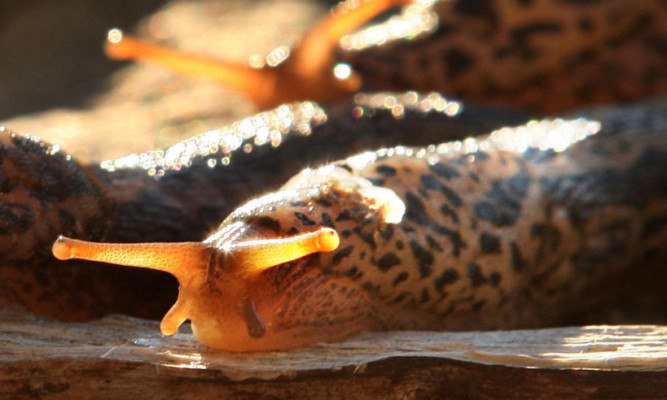THE WASHOUT summer turned 2012 into the year of the slug, which thrived while much of the UK’s wildlife struggled in the unsettled weather, experts have said.
Drought gripped swathes of England at the beginning of the year as the country basked in an unusually warm, dry March, but the sunshine gave way to the wettest summer for 100 years, hitting crops, tourism and wildlife.
The chaotic weather, which brought first hosepipe bans and then floods and storms to the UK, caused problems for a large number of species, although some managed to thrive, particularly in areas less badly hit by adverse conditions.
The National Trust’s conservation adviser Matthew Oates said: “It’s an incredibly polarised year in terms of winners and losers. Things fell into two camps they either did spectacularly well or incredibly badly.
“What we get with really difficult, wet summers, is a general picture of doom and gloom and a surprising amount of highly localised successes among the general picture.”
But the losers outweigh the winners, he said, and the big winners were slugs, including a giant Spanish super slug which was reported to be invading gardens in the cold, damp weather.
Orchids have also had a fantastic year across the country, with bee orchids doing particularly well and more than 10,000 pyramidal orchids flowering at Sharpenhoe Clappers in the North Chilterns. It was also a very strong year for grass growth.
But much of the UK’s wildlife has found the going tough, as have rural industries, farming, tourism and recreation including wildlife watching, with mammals, birds and bees all struggling to cope with the wet conditions.
There have been some surprising localised success stories, including terns at Blakeney Point, Norfolk, which had a bumper breeding year, while their fellow populations at Strangford Lough, Northern Ireland, failed to breed at all.
Chalkhill blue butterflies had an extremely good year in some spots.
Overall, though, it was a bad year for insects, with knock-on impacts for fruit and crops which they pollinate.
Mr Oates said: “The big losers were bees and butterflies and other insects. How many people got stung by a wasp in 2012? There were hardly any wasps anywhere until very late on.”
One site in Wiltshire which he has surveyed over eight years for purple hairstreak butterfly eggs where he has found between 79 and 32, with an average of 42 this year had none.
The legacy of 2012’s poor summer weather could be serious for some species, he said. Mammals also struggled in the wet conditions, with bats particularly hard hit.
Despite the prevalence of slugs, underfed hedgehogs are now flooding into rescue centres, possibly because they did not have the opportunity to feed sufficiently in the wet conditions or used up too much energy keeping warm.
Dormice had a poor breeding season and water vole holes were washed away in heavy flooding in much of the country.
Apart from some success stories, it was not a good breeding year for birds, with many nests being abandoned as a result of bad weather and a lack of food, while storms and floods destroyed nests for cliff-nesting birds and riverbank species.
Mr Oates added: “There’s a lot to recover from but these powers of recovery can be immense. In nature there’s always hope and we need some good weather (in 2013) to realise that hope.”
